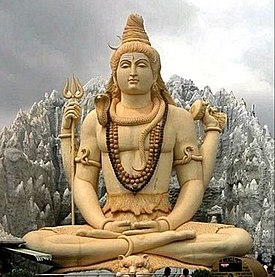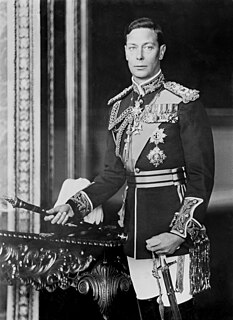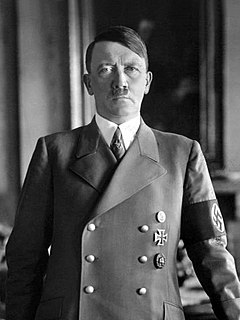Related Research Articles

The British Empire was composed of the dominions, colonies, protectorates, mandates, and other territories ruled or administered by the United Kingdom and its predecessor states. It began with the overseas possessions and trading posts established by England between the late 16th and early 18th centuries. At its height it was the largest empire in history and, for over a century, was the foremost global power. By 1913 the British Empire held sway over 412 million people, 23% of the world population at the time, and by 1920 it covered 35,500,000 km2 (13,700,000 sq mi), 24% of the Earth's total land area. As a result, its constitutional, legal, linguistic, and cultural legacy is widespread. At the peak of its power, it was described as "the empire on which the sun never sets", as the sun was always shining on at least one of its territories.
Hinduism is an Indian religion and dharma, or way of life. It is the world's third-largest religion, with over 1.25 billion followers, or 15–16% of the global population, known as Hindus. The word Hindu is an exonym, and while Hinduism has been called the oldest religion in the world, many practitioners refer to their religion as Sanātana Dharma, which refers to the idea that its origins lie beyond human history, as revealed in the Hindu texts. Another, though less fitting, self-designation is Vaidika dharma, the 'dharma related to the Vedas.'

India, officially the Republic of India, is a country in South Asia. It is the second-most populous country, the seventh-largest country by land area, and the most populous democracy in the world. Bounded by the Indian Ocean on the south, the Arabian Sea on the southwest, and the Bay of Bengal on the southeast, it shares land borders with Pakistan to the west; China, Nepal, and Bhutan to the north; and Bangladesh and Myanmar to the east. In the Indian Ocean, India is in the vicinity of Sri Lanka and the Maldives; its Andaman and Nicobar Islands share a maritime border with Thailand, Myanmar and Indonesia.

Muhammad was an Arab religious, social, and political leader and the founder of the world religion of Islam. According to Islamic doctrine, he was a prophet, sent to preach and confirm the monotheistic teachings of Adam, Abraham, Moses, Jesus, and other prophets. He is believed to be the final prophet of God in all the main branches of Islam, though some modern denominations diverge from this belief. Muhammad united Arabia into a single Muslim polity, with the Quran as well as his teachings and practices forming the basis of Islamic religious belief.

Mohandas Karamchand Gandhi was an Indian lawyer, anti-colonial nationalist, and political ethicist, who employed nonviolent resistance to lead the successful campaign for India's independence from British rule, and in turn inspired movements for civil rights and freedom across the world. The honorific Mahātmā, first applied to him in 1914 in South Africa, is now used throughout the world.

Shiva, also known as Mahadeva, is one of the principal deities of Hinduism. He is the Supreme Being in Shaivism, one of the major traditions within Hinduism.

William Shakespeare was an English playwright, poet, and actor, widely regarded as the greatest writer in the English language and the world's greatest dramatist. He is often called England's national poet and the "Bard of Avon". His extant works, including collaborations, consist of some 39 plays, 154 sonnets, three long narrative poems, and a few other verses, some of uncertain authorship. His plays have been translated into every major living language and are performed more often than those of any other playwright. They also continue to be studied and reinterpreted.

World War II or the Second World War, often abbreviated as WWII or WW2, was a global war that lasted from 1939 to 1945. It involved the vast majority of the world's countries—including all the great powers—forming two opposing military alliances: the Allies and the Axis powers. In a state of total war, directly involving more than 100 million personnel from more than 30 countries, the major participants threw their entire economic, industrial, and scientific capabilities behind the war effort, blurring the distinction between civilian and military resources. Aircraft played a major role in the conflict, including the strategic bombing of population centres, and, with the development of nuclear weapons, the only two uses of such in war. World War II was the deadliest conflict in human history, resulting in 70 to 85 million fatalities, with more civilians than military personnel killed. Tens of millions of people died due to genocides, starvation, massacres, and disease. In the wake of the war, Germany and Japan were occupied, and war crimes tribunals were conducted against German and Japanese leaders.

Edward VII was King of the United Kingdom of Great Britain and Ireland and the British Dominions, and Emperor of India from 22 January 1901 until his death in 1910.

George VI was King of the United Kingdom and the Dominions of the British Commonwealth from 11 December 1936 until his death in 1952. He was concurrently the last emperor of India until August 1947, when the British Raj was dissolved.

Victoria was Queen of the United Kingdom of Great Britain and Ireland from 20 June 1837 until her death in 1901. Known as the Victorian era, her reign of 63 years and seven months was longer than any previous British monarch. It was a period of industrial, political, scientific, and military change within the United Kingdom, and was marked by a great expansion of the British Empire. In 1876, Parliament voted to grant her the additional title of Empress of India.

The Armenian Genocide was the systematic mass murder and ethnic cleansing of around one million ethnic Armenians from Anatolia and adjoining regions by the Ottoman Empire and its ruling party, the Committee of Union and Progress (CUP), during World War I.

Jesus, also referred to as Jesus of Nazareth or Jesus Christ, was a first-century Jewish preacher and religious leader. He is the central figure of Christianity, the world's largest religion. Most Christians believe he is the incarnation of God the Son and the awaited messiah, prophesied in the Old Testament.

Adolf Hitler was an Austrian-born German politician who was the dictator of Germany from 1933 to 1945. He rose to power as the leader of the Nazi Party, becoming Chancellor in 1933 and then assuming the title of Führer und Reichskanzler in 1934. During his dictatorship from 1933 to 1945, he initiated World War II in Europe by invading Poland on 1 September 1939. He was closely involved in military operations throughout the war and was central to the perpetration of the Holocaust, the genocide of about 6 million Jews and millions of other victims.

The United States of America (USA), commonly known as the United States or America, is a country primarily located in North America. It consists of 50 states, a federal district, five major self-governing territories, 326 Indian reservations, and some minor possessions. At 3.8 million square miles, it is the world's third- or fourth-largest country by total area. With a population of more than 331 million people, it is the third most populous country in the world. The national capital is Washington, D.C., and the most populous city is New York City.

Canada is a country in North America. Its ten provinces and three territories extend from the Atlantic to the Pacific and northward into the Arctic Ocean, covering 9.98 million square kilometres, making it the world's second-largest country by total area. Its southern and western border with the United States, stretching 8,891 kilometres (5,525 mi), is the world's longest bi-national land border. Canada's capital is Ottawa, and its three largest metropolitan areas are Toronto, Montreal, and Vancouver.
Islam is an Abrahamic monotheistic religion teaching that Muhammad is a messenger of God. It is the world's second-largest religion with 1.9 billion followers or 24.9% of the world's population, known as Muslims. Muslims make up a majority of the population in 51 countries. Islam teaches that God (Allah) is merciful, all-powerful, and unique, and has guided humanity through prophets, revealed scriptures, and natural signs. The primary scriptures of Islam are the Quran, believed to be the verbatim word of God, as well as the teachings and normative examples of Muhammad.

The Holocaust, also known as the Shoah, was the genocide of European Jews during World War II. Between 1941 and 1945, Nazi Germany and its collaborators systematically murdered some six million Jews across German-occupied Europe, around two-thirds of Europe's Jewish population. The murders were carried out in pogroms and mass shootings; by a policy of extermination through labor in concentration camps; and in gas chambers and gas vans in German extermination camps, chiefly Auschwitz, Bełżec, Chełmno, Majdanek, Sobibór, and Treblinka in occupied Poland.

Elizabeth II is Queen of the United Kingdom and 15 other Commonwealth realms.
References
- ↑ Oswald, Hans-Peter (2009). Vodoo. p. 23. ISBN 3-8370-5904-9.
- ↑ Pears Encyclopaedia of Myths and Legends: Oceania and Australia, the Americas, Book 4. Penham. 1978. p. 195. ISBN 0-7207-1050-2.
